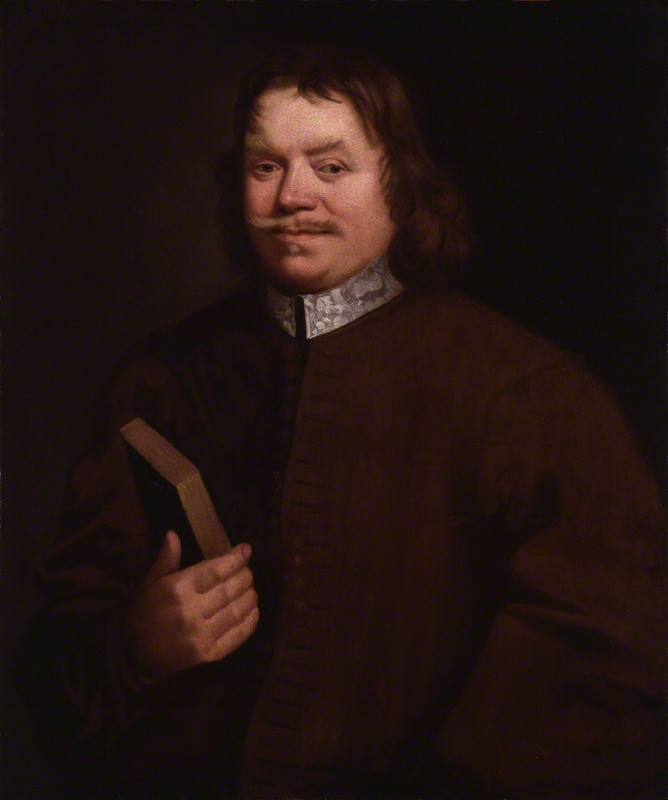John Bunyan nejznámější citáty
Originál: (en) Christ is so hid in God from the natural apprehensions of the flesh, that he cannot by any man be savingly known, unless God the Father reveals him to them.
Zdroj: BUNYAN, John; SCOTT, Thomas. The Pilgrim's Progress: From this World to that which is to Come. Delivered Under the Similitude of a Dream. S. 196.
Originál: (en) Affliction is better than sin, and if God sends the one to cleanse us from the other, let us thank him, and be also content to pay the messenger.
Zdroj: [Harley, Thomas, 2013, Some Birds Sing in Winter: Finding Joy in the Depths of Affliction, WestBow Press, Bloomington, USA, 230, angličtina, 1490806296]. Dostupné online. https://books.google.cz/books?id=WUyrAAAAQBAJ&pg/
Originál: (en) Nothing can hurt thee but sin; nothing can grieve me but sin; nothing can make thee base before thy foes but sin.
Zdroj: [Bunyan, John, 1831, The works of that eminent servant of Christ, John Bunyan: minister of the gospel and formerly Pastor of a Congregatin at Bedford, Vol. 2, Nathan Whiting, 210, angličtina]. Dostupné online. https://books.google.cz/books?id=Pm5TAAAAYAAJ&pg/
Originál: (en) What God says is best, is best, though all the men in the world are against it.
Zdroj: [Bunyan, John, Scott, Thomas, 1825, The Pilgrim's Progress: From this World to that which is to Come. Delivered Under the Similitude of a Dream. In Two Parts, Silas Andrus, Hartford, 554, angličtina]. Dostupné online. https://books.google.cz/books?id=a6Y-AAAAYAAJ&vq/
John Bunyan citáty a výroky
Originál: (en) God, as being very tender to me, has not allowed me to be bothered, but would, with one scripture or another, strengthen me against everything; insomuch that I have often said, “Were it lawful, I could pray for greater trouble, for the greater comfort’s sake.“
Zdroj: [Phillip, Robert, 1839, The life, times, and characteristics of John Bunyan, D. Appleton & Co., 325, angličtina] Dostupné online. https://books.google.cz/books?id=2diNyFKORN0C&dq/
„Modlete se často; neboť modlitba je štítem pro duši, oběť Bohu a metlou pro Satana.“
Originál: (en) Pray often; for prayer is a shield to the soul, a sacrifice to God, and a scourge for Satan.
Zdroj: [Bunyan, John, 1873, The complete works of John Bunyan, Bradley, Garretson & Co., 80, angličtina]
„Jedna trhlina potopí loď, a jeden hřích zničí hříšníka.“
Originál: (en) One leak will sink a ship: and one sin will destroy a sinner.
Zdroj: Ibid., s. 244.
„Modlitba povede člověka, aby přestat hřešit, nebo hřích navede člověka, aby se přestal modlit.“
Originál: (en) Prayer will make a man cease from sin, or sin will entice a man to cease from prayer.
Zdroj: [Bunyan, John, Wilson, Samuel, 1736, The Works: Being Several Discourses Upon Various Divine Subjects, Vol.1, E. Gardner, Londýn, 2., 14, angličtina]. Dostupné online. https://books.google.cz/books?id=CDpJAAAAcAAJ&dq/
Originál: (en) Sin is the dare of God's justice, the rape of His mercy, the jeer of His patience, the slight of His power, and the contempt of His love.
Zdroj: [Manser, Martin H., 2001, The Westminster Collection of Christian Quotations, Westminster John Knox Press, Louisville, Kentucky, 1., 345, angličtina, 0664222587]. Dostupné online. https://books.google.cz/books?id=b-N2i0CSWMUC&dq/
Originál: (en) You can do more than pray, after you have prayed, but you cannot do more than pray until you have prayed.
Zdroj: [Johnson, Theresa S., 2010, Treasures of Hope: Testimonies of Hope, Author House, Bloomington, Indiana, 20, angličtina, 1449095623]. Dostupné online. https://books.google.cz/books?id=sTQREvb2tngC&dq/
Originál: (en) If we have not quiet in our minds, outward comfort will do no more for us than a golden slipper on a gouty foot.
Zdroj: [MacPherson Shilling, Lilless, Fuller, Linda F., 1997, Dictionary of Quotations in Communications, Greenwood Publishing Group, Westport, Connecticut, 206, angličtina, 0313304300]. Dostupné online. https://books.google.cz/books?id=qJnrg1ZYnAkC&dq/
„Mozek zahálčivého je ďáblova dílna.“
Originál: (en) An idle man's brain is the devil's workshop.
Zdroj: [Kroft, J. D., 2000, Little Gems of Wisdom: Advice from Grandpa, Xulon Press, Vienna, Virginia, 68, angličtina, 1931232156]. Dostupné online. https://books.google.cz/books?id=qJnrg1ZYnAkC&hl/
John Bunyan: Citáty anglicky
“The name of the slough was Despond.”
Part I, Ch. II : The Slough of Despond
The Pilgrim's Progress (1678), Part I
Grace Abounding to the Chief of Sinners (1666)
“They came to the Delectable Mountains.”
Part I, Ch. XVI : The Delectable Mountains
The Pilgrim's Progress (1678), Part I
Part II, Ch. XI : Mr. Valiant-For-Truth
The Pilgrim's Progress (1678), Part II
Part II, Ch. VIII : The Guests of Gaius
The Pilgrim's Progress (1678), Part II
Zdroj: The Pilgrim's Progress (1678), Part I, Ch. IX : Apollyon<!-- (London, Edinburgh, Glasgow, New York and Toronto: Henry Frowde, 1904) -->
“It beareth the name of Vanity Fair, because the town where 't is kept is lighter than vanity.”
Part I, Ch XIII : Vanity Fair
The Pilgrim's Progress (1678), Part I
“See that your cause be good, else Christ will not undertake it.”
The Work of Jesus Christ as an Advocate
“Every fat must stand upon its own bottom.”
Part I, Ch. VI : The Cross and the Contrast; comparable to: "Every tub must stand upon its bottom", Charles Macklin, The Man of the World, act i. sc. 2
The Pilgrim's Progress (1678), Part I
Grace Abounding to the Chief of Sinners (1666)
Part II, Ch. XI : Mr. Valiant-For-Truth
The Pilgrim's Progress (1678), Part II
“When a man's cause is good, it will sufficiently plead for itself, yea, and for its master too.”
The Work of Jesus Christ as and Advocate
Part I, Ch. VII : The Palace Beautiful
The Pilgrim's Progress (1678), Part I
